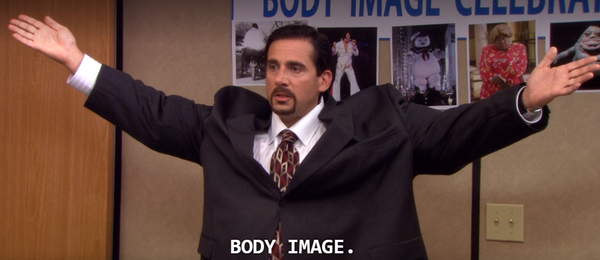The outrageous British sitcom "Chewing Gum" is lightyears away from anything that’s been produced in the U.S. recently– and that’s what makes it so damn good. Creator Michaela Coel is back as the unapologetically awkward but lovable Tracey, who’s just come back after a three-month stay at a homeless shelter. Season two brings delight in its brashness, vulgarity, and lewd situations that hold you hostage in its grip until it cuts right as things come to a boil. Tracey is fearless and determined to get her life exactly how she wants it, breaking barriers along the way.
Tracey’s escapades are hilariously documented with her charming narration, breaking the fourth wall in the middle of conversations, fights, and uncomfortable moments. But Tracey’s world in the seedy Tower Hamlets Estate is nothing without the colorful cast around her. Characters like her bookish sister Cynthia (Susie Wokoma), sweet and misunderstood ex-boyfriend Connor (Robert Lonsdale), and strict overbearing mother Joy (Shola Adewusi) bring necessary perspectives to “the London I know,” says Coel.
It’s tactful to see the cast developing throughout the series. Tracey’s flamboyant friend Ola has whole episodes to himself as a way to explore his minority status, “black, gay, working class, Irish,” he says. There’s also an episode dedicated to Tracey’s obligatory grandmum/neighbor Esther, who catfishes a man over the phone only to have her anxiety lifted when he reveals himself to be blind.
Coel uses her platform to tackle issues in race, dating, and surviving in the “underclass.” In an especially irky episode, Tracey meets Ash, a white male dressed in a stylish suit. He picks her up on the street, saying her “features were graced by God himself.” Naïve, flattered, and still heartbroken over her recently broken relationship, Tracey agrees to go on a date with him. They sit at a table in a dimly lit jazz club while Ash rambles about his love and respect for the genre.
After bashing Beyoncé, Ash asks Tracey where she’s from. No, not London – where she’s from. Tracey shakes it off while we’re dying from secondhand embarrassment behind the screen. Leave the date, Tracey! What are you doing! Alas, she goes home with him. A few days later Tracey’s doing a dance for Ash in his penthouse apartment wearing a little more than the tribe members in “The Gods Must Be Crazy” when his black wife and mixed-race children walk in on the scene. Tracey, embarrassed and lied to, let them both have it in a gloriously impressive rant that needs to be aired in every sociology class now until the end of time.
Although Ash displays racial fetishism, characters like Ash have been cropping up in scripts written by other black artists. Donald Glover tackles cultural appropriation in his FX sitcom Atlanta with a white character obsessed with African art, right down to his black trophy wife. As if to sum up the theme of the episode, a quote from Ntozake Shange’s “For Colored Girls Who Have Considered Suicide When The Rainbow Is Enuf” rears at the end. “I couldn’t stand being sorry and colored at the same time, it’s so redundant in the modern world.” Standout artists like Coel and Issa Rae of HBO’s Insecure embody Shange’s quote in electrifyingly good TV.
Coel also revisits the traumatizing season one episode where Tracey is sexually harassed by her cousin and childhood friend Boy Tracey (Jonathan Livingstone). The deep emotional disturbance Tracey feels from having her cousin strip down naked and confess his love for her in her childhood bedroom gets masked by cringey humor and good manners.
No matter how disgusting this storyline is, sexual harassment by family members is a profoundly important issue, and Coel tackles it head on with brilliance. Tracey is forced again in season two to confront Boy Tracey when her uncle comes to help out her mother. And, through politeness, forced to converse with him alone. She’s upfront with him – they need time apart. She shrieks at him, letting him know that she can’t and won’t be intimidated. Tracey’s strong personality and airtight morals have the power to shed light on handling a situation like this.
The only fallout of the series was Candice (Danielle Isaie) and Aaron’s (Kadiff Kirwan) development. Their patient, loving, and admirable relationship was spat on by poor and unrealistic narrative choices resulting in a tragic twist. The writing of these two beloved characters, usually so honest, was tarnished for an overdramatic flashy ending.
Perhaps Coel wanted to get the theme across as quickly as she could and used this shift in narrative to her advantage. In an inspiring monologue at the end of the series finale, Coel is at the mic preaching to the lot at the Tower Hamlets Estate. “We’re a mixed bunch, but we stick together, like chewing gum on concrete.”
By taking crucial issues and handing them to Tracey, Coel makes one thing clear at the end of season two – she is not a force to be reckoned with. She clarifies what we desperately need clear, without us having to ask. One can only hope for humor like Coel’s in U.S. TV sometime soon.



















